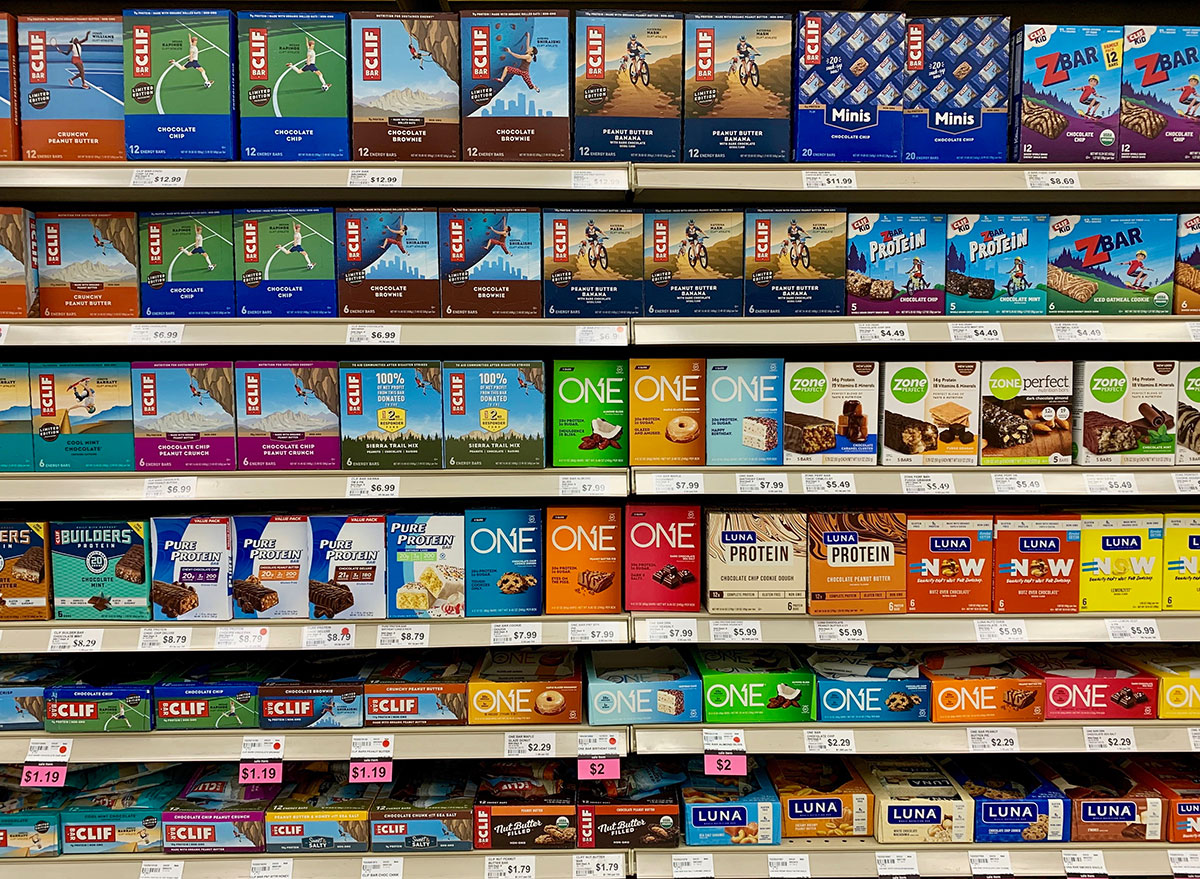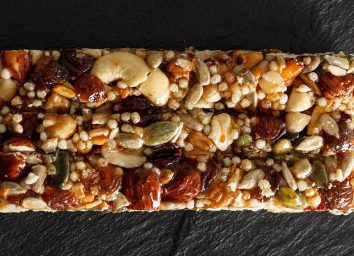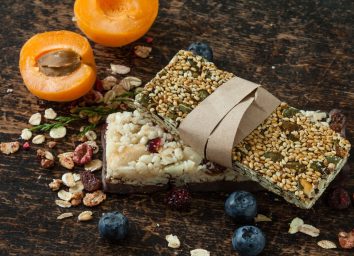The #1 Best Protein Bar to Eat, According to a Dietitian

As a registered dietitian, CrossFit enthusiast, trail runner, and busy, active person, protein bars are a convenient, portable option when I don't have time to meal prep and cook. But eating protein bars as a meal replacement isn't the only reason they're one of my diet staples.
Protein bars are also my go-to when I'm traveling, lack protein in my main meals, or when I have to skip a meal due to other commitments. While I love that bars make it easy to add more protein to your diet, because eating natural whole foods that are unprocessed is best for your overall health and wellness, I do opt to eat meals and snacks that naturally provide lean protein, healthy fats, and wholesome carbs rather than leaning on protein bars completely.
That being said, I'm still a big fan of protein bars, and because you're reading this, I assume you are too. But we all know that there are hundreds of options to choose from when shopping in the grocery aisle, and it can feel as though you're not making the right choice for you just based on the sheer volume of options. So I'd like to help.
Here's what you need to know to help you find the best protein-packed bar to meet your needs.
What you need to think about when you're shopping for a protein bar.
The best protein bar for me might not be best for you or the next person. It's going to depend on what your goal is by eating a protein bar.
So how do you know which protein bar is best? It usually takes a bit of trial and error and knowing the type of eating pattern you follow and what your daily macros will accommodate. (Keep reading for my specific branded recommendations below.)
For example, endurance athletes like protein bars that have plenty of carbs along with protein to help replenish the glycogen that they burn during their long workouts. On the other hand, those who do resistance training or HIIT want protein to build and retain muscle mass, but not as many carbs or calories.
My main activity is CrossFit, so I like to focus on my macros and keep protein count high while keeping my grams of added sugars, saturated fat, and calories in check; however, I also do a lot of long trail runs, so the protein bars I need on my long training run days are different from my HIIT training days.
What I look for in the best protein bar. (Spoiler alert: it's not the same for everyone.)
Since there are literally supermarket shelves stuffed with myriad brands of protein bars, here are some general guidelines to keep in mind.
If you're like me and keeping total calories and carbs is your goal, look for a protein bar that provides less than 220 calories, 10 or more grams of protein, and sugars are limited to no more than 10 grams or 2 ½ teaspoons.
If you need calories and carbs to fuel your active lifestyle, then follow these guidelines of keeping calories to about 300 calories, 12 or more grams of protein, and less than 20 grams or 5 teaspoons of sugar.
The best protein bar for plant-based eaters.
If you want a vegan or plant-based bar, choose one made with soy and/or pea protein. Two protein bars I like are Aloha and Orgain. They are plant-based and both are made with wholesome, plant-based ingredients. (Related: Why Pea Protein Powder Should Be in Your Pantry.)
The best protein bar for keeping macros in check.
My main protein-rich, low-carb bar that is my favorite when carbs and calories need to stay in check, I choose a Quest Nutrition Protein Bar. Not only are the flavors tasty, but the nutritionals are also stellar.
The Quest Chocolate Hazelnut bar has 190 calories, 1.5 grams saturated fat, 14 grams fiber, 20 grams protein, and zero added sugar.
The protein source is milk protein isolate and whey protein isolate and is sweetened with two zero-calorie sweeteners: stevia and erythritol. (Related: Is Whey Protein Better Than Plant Protein? A Registered Dietitian Explains)
The best protein bar for endurance exercise.
My endurance-related protein bar pick is the RXBAR for days when the extra carbs are needed to fuel my longer activities.
RXBARs are also made from a few wholesome ingredients including egg whites, nuts, and natural flavors. The Chocolate Sea Salt has 210 calories, 2 grams saturated fat, 5 grams fiber and 13 grams of sugar (3 ¼ teaspoons), and 12 grams of protein.
Takeaway
While there's no one-size-fits-all protein bar, these tips should help guide you when finding a bar that will provide the nutrients you want and need, while keeping those that you want to limit or avoid in check. For some more options, don't miss these 15 Best Protein Bars, According to Dietitians.
For more healthy eating news, make sure to sign up for our newsletter!







